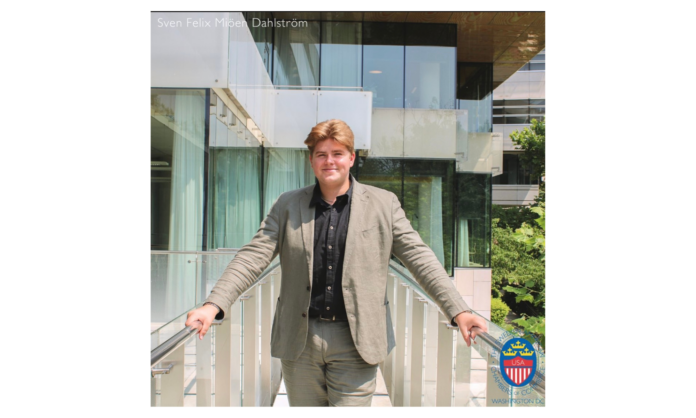While the narrative of Swedes leaving the comfort of the Nordics to take part in the American college experience is far more prevalent, there is a growing curiosity among Americans who want to study in Scandinavia.
Together with SIREUS, a partnership between The Swedish American Chambers of Commerce (SACC-USA) and 13 Swedish universities, we decided to interview Felix Miöen Dahlström, a Swede in the States, born in Stockholm but raised in Texas.
When the time came to choose his college, Felix made the deliberate choice to return to Sweden for his studies. He stands as one among many, with Swedish heritage, who opted to leverage their college experience as a means to forge deeper connections with their roots in Sweden.
For those interested in learning more about studying in Sweden, SIREUS will be organizing three events in New York City, Pullman, WA, and Orange County, CA. These events are tailored to assist individuals with a keen interest in pursuing their education in Sweden.
Interview by Johanna Schoug for Swedes in the States.
Growing up in the United States, what motivated you to study in Sweden?
What truly motivated me to study in Sweden was the international aspect. Attending an international business school gave me exposure to many different cultures and allowed me to make friends from all over the world. The integrated study abroad program was also very interesting to me, and I took advantage of it by studying a term in Switzerland at the Zurich School of Management and Law.
Being able to study and learn from Sweden’s leading companies and conduct various case studies for them was an extremely rewarding experience. Swedish companies prioritize sustainability, which is also important to me.
What are your most memorable experiences from your studies?
In my freshman year, I won our Entrepreneurship challenge with five of my fellow students, creating molds of women’s bodies from recycled candles from churches in Jönköping. Our costs were roughly 2 SEK per candle, and we had a profit margin of 98 SEK per candle, all of which were donated to local women’s shelters to help with domestic abuse. This opportunity highlighted the idea that business can do good for others, not just be profitable.
Another memorable experience from Jönköping was the kickoffs. A kickoff is meant to be an intro week where you get to know fellow alumni. During intro week, you are assigned to a team consisting of roughly 19 people and four sponsors, with a total of around 15-18 teams. The whole kickoff is designed like a tournament, with all teams competing for the top score. Points are awarded for school spirit, challenges, and, of course, partying. These two weeks are all about getting to know your fellow classmates and having the time of your life.
How has your exposure to the Swedish education system and culture prepared you for your future career or academic pursuits?
The Swedish academic system is very different from that of the U.S. You are given flexibility and freedom in a way that the US education system does not really offer. In Sweden, there are no mandatory classes, only seminars. I believe this is because professors have more faith in their students, as people start studying at various ages. For example, I am very good at math, so for most of my economics courses, I studied from home using the class literature instead of attending class because that’s how I learn math – repetition, repetition, repetition. But for marketing, I needed hands-on experience, so I attended all my classes. I think this is a very smart way of teaching because it gives students the freedom to learn in a way that suits them and responsibility for their own education.
The Swedish academic system has taught me more than I could have ever imagined. I could go on for countless hours talking about it, but these are my main takeaways:
– Taking initiative: The Swedish school system is fast and aggressive. All my courses were 9 weeks long, followed by exams, and then we moved on to the next course. This teaches one to take initiative and focus on what’s important. Even in Zurich, I studied 7 courses at the same time and had 10 different exams in one week.
– Being productive: With so many fun things happening in Sweden all the time, it’s very easy to get distracted. But the Swedish school system does not wait for you. This means time management and focusing on the important things are crucial. The work-life balance during your studies is quite incredible if handled correctly.
What advice would you give to someone considering studying in Sweden?
My advice is to do it. It’s the best decision I have ever made. Not only can you attend some of the best universities in Europe and the world, but you will also be exposed to an amazing culture and experiences. I made the most of my three years, traveling all over Europe and truly seeing what the world has to offer. If you have the possibility to, I don’t think you can make a better decision in life than studying in Sweden.





